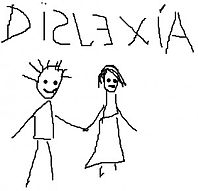It is a common misconception that the terms ‘intellectual disability’ and ‘learning difficulty’ can be usable interchangeably. In actuality, where an individual suffering an intellectual disability will operate significantly below the average level of capability and intelligence for his or her age group, a child with learning difficulties may be only a little way below average and the difficulty is often localized to one particular type of task. Language skills, for example, is a common area of difficulty for these children. It may be through problems with visual interpretation of the letters, phonetic issues in pronouncing words or difficulties with the auditory component of listening and understanding. These cases are often dealt with by bringing in a learning specialist, using speech therapy, extra allowances for time or a reader in exams and perhaps a designated resource class to focus on developing core skills1.

Dyslexia is a specific type of learning difficulty, often discovered in childhood, which makes reading, interpreting and reproducing letters and other symbols a challenge.
Of course, the learning difficulty can be quite large in the more severe cases. This can result in other psychological complications such as poor social skills, adjustment problems, low self-esteem and possible aggression due to frustration at the situation they are in. It is important such children receive the support they require to thrive.
References:
1. Ernest J. Bordini, Ph.D. (2000). THE ABC’s of Specific Learning Disorder. [ONLINE] Available at: http://cpancf.com/articles_files/learning_disorders.asp. [Last Accessed 13.12.13].
© BrainMass Inc. brainmass.com July 26, 2024, 8:45 pm ad1c9bdddf